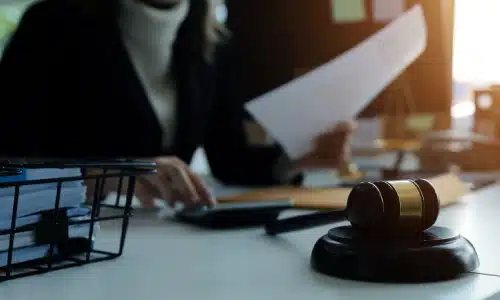
In this guide, we’ll walk you through the process, explain why you need these reports, as well as how they can assist you in various situations.
Understanding the Role of the Queens County Sheriff’s Office
The Queens County Sheriff’s Office plays a significant role in maintaining public safety and order within Queens. While they handle a variety of law enforcement duties, including investigations and corrections, they also manage records related to car accidents that occur within their jurisdiction.
Understanding how to request and obtain these records can help you navigate the aftermath of an accident more effectively.
Why You Need a Car Accident Report
A car accident report is more than just a piece of paperwork; it’s a crucial document with several important uses:
- Insurance Claims: To process insurance claims, your insurer will require detailed information about the accident. Your NY police report includes essential details like the accident’s date, location, involved parties, and a narrative of the incident, which helps in determining fault and calculating compensation.
- Legal Proceedings: If you’re involved in a lawsuit related to the accident, the report serves as key evidence. It helps establish the facts of the case, supports your claims, and can influence the court’s ruling on damages or liability.
- Medical Records: For those who sustained injuries, having a detailed report can assist healthcare providers in understanding the context of the accident and offering appropriate treatment.
- Personal Records: Keeping a copy of the report for your records can be beneficial for future reference or any follow-up actions related to the accident.
Here’s a detailed look at the different methods available for obtaining your car accident report from the Queens County Sheriff’s Office:
1. In-Person Request
Visiting the Queens County Sheriff’s Office in person is a direct way to get your report:
- Location: You’ll need to go to the Queens County Sheriff’s Office at 14406 94th Ave, Jamaica, NY 11435.
If you’re unsure of the exact location, a quick call to their office or a search online can provide this information. - What to Bring: Make sure to bring a valid form of identification, such as a driver’s license or passport. Additionally, be ready to provide details about the accident, such as the date, location, and any relevant report numbers.
- Request the Report: Once at the office, you can request the report directly. This method allows for immediate assistance and potentially quicker processing if the report is readily available.
2. Mail Request
If visiting in person isn’t possible, you can request the report by mail:
- Prepare Your Request: Write a letter addressed to the Queens County Sheriff’s Office. Include your full name, the date of the accident, the location, and any relevant report numbers. Also, attach a photocopy of a valid ID.
- Include a Self-Addressed Stamped Envelope: To ensure the return of your report, include a self-addressed stamped envelope with your request.
- Mail It: Send your request to the Queens County Sheriff’s Office. This method is suitable if you prefer a written record of your request and are comfortable waiting for the mail delivery.
3. Online Request
For convenience, check if the Queens County Sheriff’s Office uses the NYPD online portal for requesting reports:
- Visit the Portal: If available, navigate to the NYPD website and locate their accident report retrieval section.
- Submit Your Request: Follow the instructions provided on the portal to submit your request. This often involves filling out an online form and may require payment for the report.
- Processing Time: Keep in mind that it may take several days for your report to be processed and made available through the online system.
4. DMV Request
For reports that are older than 30 days:
- Form MV-198C: You can request a copy from the New York State Department of Motor Vehicles (DMV) using Form MV-198C.
- Submit the Form: Complete the form and mail it to the DMV. This method is specifically for reports that have been filed over a month ago.
Additional Tips
- Fees: Be aware of the associated fees for each method. In-person requests typically cost around $10, while online requests may involve a similar or slightly higher fee. Mail requests generally have comparable fees to online requests.
- Authorization for Others: If someone is requesting the report on your behalf, they will need a signed authorization letter from you, a copy of your ID, and to be aware of any fees.
- Follow-Up: If you experience any delays or issues, follow up with the Queens County Sheriff’s Office or the DMV to check the status of your request.
Obtaining your car accident report from the Queens County Sheriff’s Office can be a straightforward process if you know the steps to follow. Whether you choose to visit in person, request by mail, use an online portal, or contact the DMV for older reports, having this document is essential for managing insurance claims, legal matters, and personal records.
Get Expert Help for Your Police Report With the CEO Lawyer Personal Injury Law Firm
For expert assistance with personal injury cases and navigating the complexities of insurance and legal processes, contact the CEO Lawyer Personal Injury Law Firm at (516) 689-1132. Ali Awad, the founder and managing attorney of one of the fastest-growing law firms in the United States, and his experienced team are here to guide you with an impressive track record of over 99.5% success rate.
Having the right documentation and legal support can make a significant difference in resolving your case efficiently. Don’t hesitate to reach out to our Queens car accident lawyers for the professional help you need!
Disclaimer: This article is intended for informational purposes only and does not constitute legal advice. Please consult with an attorney for advice regarding your specific situation.



